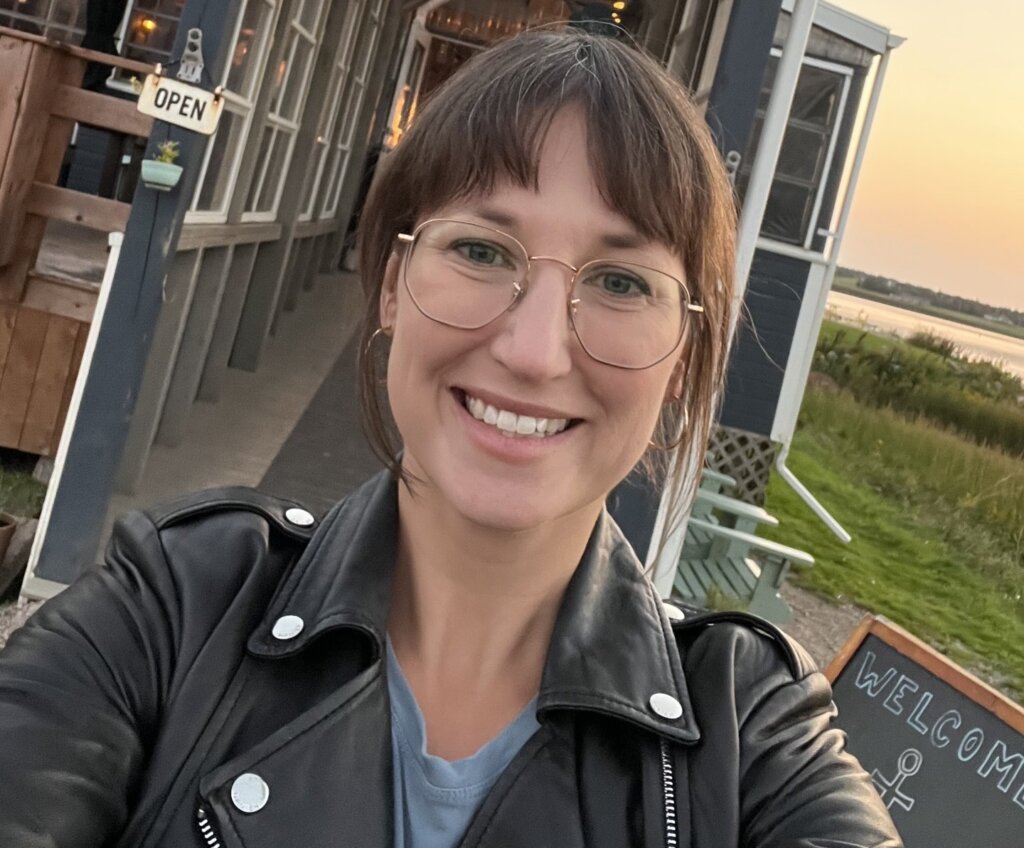
Rebecca’s legacy of change
Rebecca Grundy believed in using her voice for change.
She’d been working as a government lobbyist for the Progressive Conservative (PC) party in Ontario and as a successful public relations and communications professional. In the latter, she worked on campaigns for Rethink Breast Cancer and lobbied to bring Novocure’s Optune device, a wearable treatment for glioblastoma, to Canada.
She was at the top of her career, had a longtime love, Tano, and was keeping active. A synchronized swimmer since age seven, Rebecca enjoyed being in the pool with her Toronto Synchro Club teammates. She also spent her time outdoors, whether riding her bike or camping.
A sudden shift
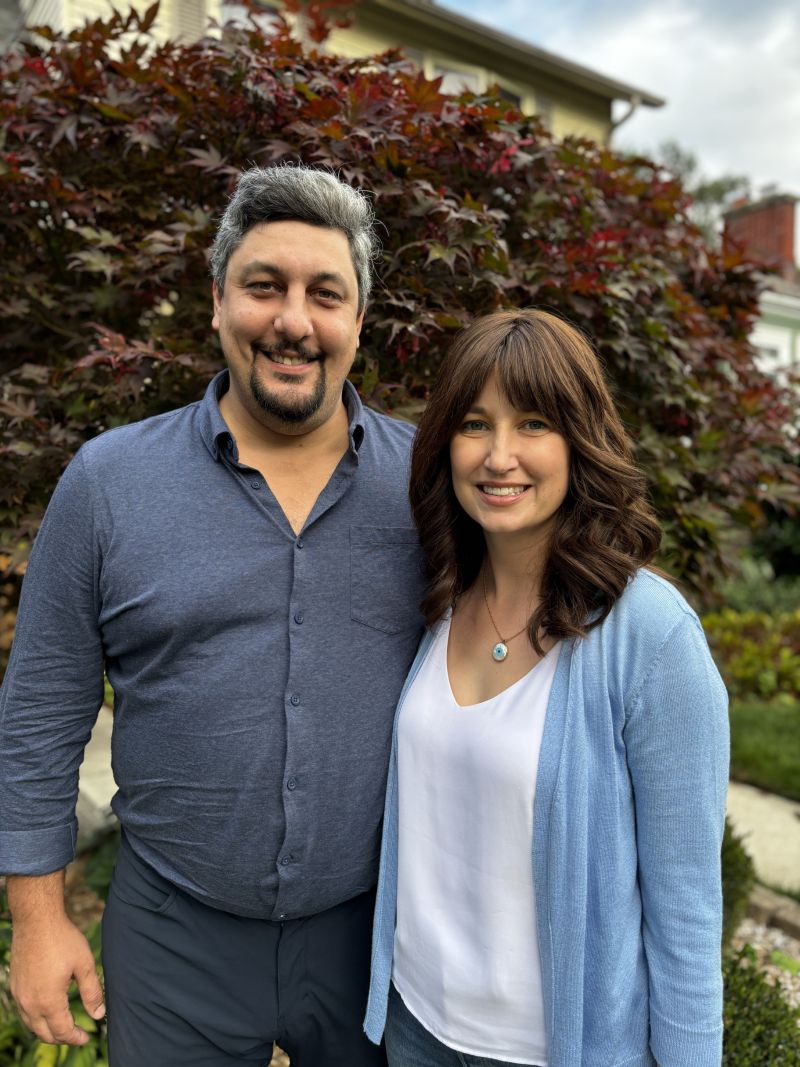 By all accounts, Rebecca was thriving. There was no indication that anything could be wrong with her health, until she suffered three consecutive grand mal seizures while at a friend’s house. She woke in the hospital, where doctors told her she had a non-malignant tumour in the left-frontal lobe of her brain.
By all accounts, Rebecca was thriving. There was no indication that anything could be wrong with her health, until she suffered three consecutive grand mal seizures while at a friend’s house. She woke in the hospital, where doctors told her she had a non-malignant tumour in the left-frontal lobe of her brain.
Rebecca underwent surgery at Toronto General Hospital a month later, which is when she learned she actually had glioblastoma.
“That was just horribly shocking,” says Angela Grundy, Rebecca’s mom. “So then, the journey began.”
Rebecca started radiation therapy and oral chemotherapy, by way of temozolomide pills. In Ontario, IV treatments in hospital were fully funded, however pill treatments taken at home were generally only covered for those who are 65 years or older (Source: Ontario Ministry of Health). Younger patients, like then-28-year-old Rebecca, would often experience delays, administrative challenges and out-of-pocket costs.
Having to jump through hoops to gain access to necessary medication, while recovering from brain surgery, was an added stressor. Knowing she, and others, were in this situation, didn’t sit right with Rebecca.
From patient to advocate
She became involved with the CanCertainty Coalition—the united voice of more than 30 Canadian cancer patient groups—to raise awareness amongst Ontario policymakers about the need for fair and equal access to cancer treatment. Her efforts contributed to a commitment from all political parties to address these disparities.
Rebecca also took part in fundraising activities through the Gerry and Nancy Pencer Brain Tumor Centre, within Toronto’s Princess Margaret Cancer Centre, creating a team called the Glioblasters for the organization’s Journey to Conquer Cancer walk or run.
“I think she raised close to $50,000 in the years she’d put a team together,” Angela says, adding that Rebecca was also on the hospital’s patient review board.
Balancing treatment and impact
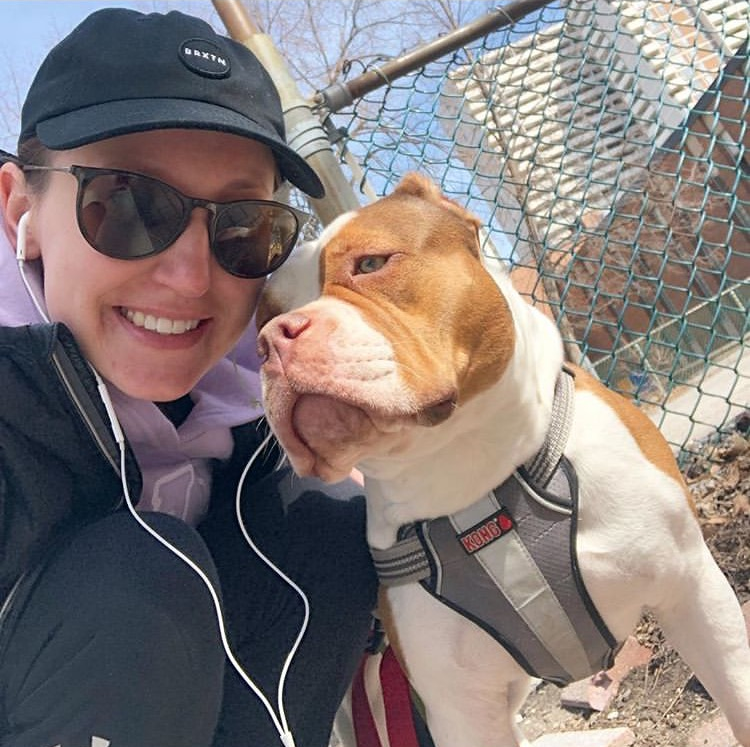 While advocating for change for cancer patients and managing her own diagnosis, Rebecca also returned to her work as a government lobbyist. She continued working until she had a recurrence of her tumour in 2022, for which she had another surgery and took a step back from her work commitments.
While advocating for change for cancer patients and managing her own diagnosis, Rebecca also returned to her work as a government lobbyist. She continued working until she had a recurrence of her tumour in 2022, for which she had another surgery and took a step back from her work commitments.
“She decided to take some time for herself and to do what she wanted to do,” Angela says.
That meant participating in her hobbies, like synchronized swimming, and spending time with family, friends, and the dog that Tano—who she got engaged to in September 2023—had given her when she was nearly done her first round of radiation.
“She said, ‘How am I supposed to take care of a dog? I can’t take care of myself,’” Angela recalls, of Rebecca being gifted her new pup, named Cardi. “But it turned out that Cardi was such a great companion for Rebecca.”
Meanwhile, Rebecca kept experiencing positional headaches and her scans showed that her tumour was growing back. She had a third surgery in 2023, performed by the same doctor who had done her previous surgeries, Dr. Gelareh Zadeh.
“It was comforting to her, to have Dr. Zadeh do all her surgeries,” Angela says.
Come spring 2024, Rebecca’s MRI was again showing tumour growth. Radiation was recommended, as it was in a slightly different spot as before.
“Ever since then, she’d have seizures, maybe once a month,” Angela says. “Then she began having them more often, and she’d have the positional headaches again. When they did another MRI, it didn’t show a lot of change in the left frontal lobe, but it showed new tumour growth at the optic chiasm.”
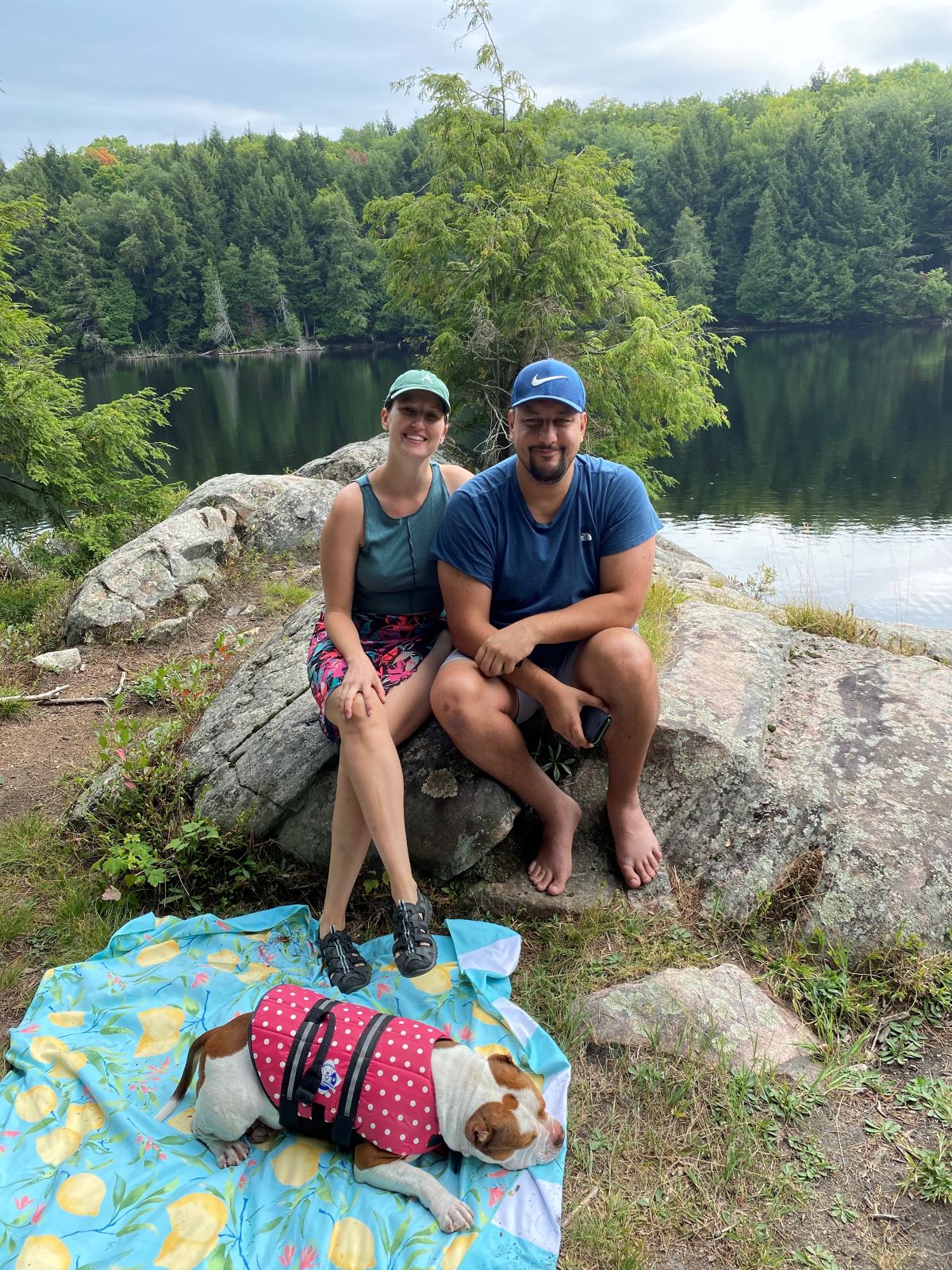 The new tumour growth was affecting Rebecca’s vision, and so she underwent a fourth surgery in November 2024. Doctors were able to remove some of the tumour in her left-frontal lobe, but couldn’t reach the new growth.
The new tumour growth was affecting Rebecca’s vision, and so she underwent a fourth surgery in November 2024. Doctors were able to remove some of the tumour in her left-frontal lobe, but couldn’t reach the new growth.
Angela, who lived near London, Ont., had been staying with Rebecca at her home in Mississauga, Ont., at that time, and helping her as she recovered from her most recent surgery. Rebecca had been experiencing right-sided weakness and difficulty speaking, and so she began physiotherapy and occupational therapy at Toronto Rehabilitation Institute. She’d only been at it for a week-and-a-half or so, though, before she was told to start radiation again.
Because she couldn’t continue her rehabilitation therapy and her radiation treatments at the same time, Rebecca chose to focus on radiation.
“That’s when the doctors said, ‘You need to think about what you want to do if things do not get better,’” Angela recalls.
After another seizure, Rebecca was admitted to Toronto Western Hospital, before moving to the palliative care unit at Princess Margaret Hospital. While Rebecca was able to stay for the short term, she had to decide where she wanted to go for the long term. She settled on Sakura House Hospice in Woodstock, Ont., as it was close to where she grew up and where her family lived.
Maintaining hope
“She never gave up hope,” Angela says. “She fought to the very end. She was determined that she was going to get better somehow. Her oncologist told her a few times that the MRIs are not looking good and she should start thinking about living her life and doing what she wants, but she never wanted to give in to that. She was a fighter.”
Right up until her last surgery, Rebecca had been taking part in F45 classes—high-intensity interval training (HIIT). She’d been growing her own vegetables, eating organic, trying everything she could to get back on the path to health.
She’d also been wearing the Optune device, which she, ironically, needed after her time spent lobbying to bring it to Canada.
“Those kinds of things were just surreal,” Angela says. “She was always lobbying to better life for other people, and it turned out she needed the device she’d been lobbying for.”
Staying determined
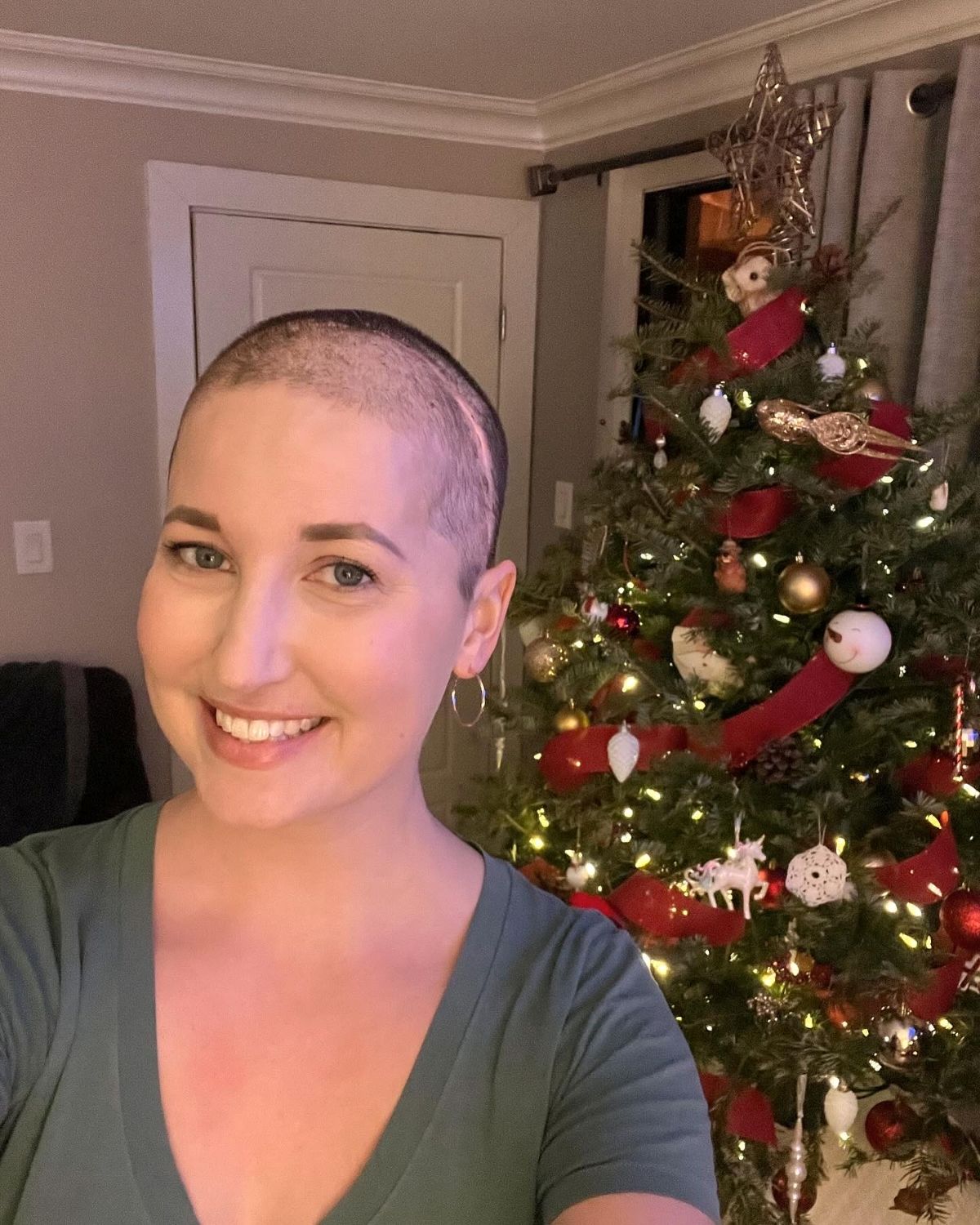 Angela describes a day at Sakura House when she and her husband, Kevin, took Rebecca outside in her wheelchair and she unbuckled herself, ready to go for a walk.
Angela describes a day at Sakura House when she and her husband, Kevin, took Rebecca outside in her wheelchair and she unbuckled herself, ready to go for a walk.
“She could hardly stand at that time,” Angela says, “but she was like, ‘I’m going to do this.’ She was a very intelligent woman and she knew she was losing her ability to see, her ability to speak, her ability to be mobile. But she was determined. She was never giving up.”
Angela recalls having to ask Rebecca tough questions, like her wishes if she were to pass away. Rebecca wanted her service to be held at North Park Community Church in London, where her sister, Christina—only 16 months older than her—frequented with their parents. Then, she wanted a party.
Rebecca’s continued impact
When Rebecca sadly passed on January 3, 2025, she had just that. After the church service, her family and friends celebrated her life at the London Music Hall.
“It was a beautiful tribute to her,” Angela says.
Rebecca has continued to make an impact even after her passing, donating her body to science. She wanted to help others even when she couldn’t—requesting that her brain be studied in the research program directed by neurosurgeon, Dr. Sheila Singh, and her body donated to future medical professionals studying anatomy.
“She was always concerned for other people,” Angela says. “When people would visit her, she’d ask, ‘What’s going on in your life? How are you doing? Are you okay?’ People would come to support her and she would still want to support them. That’s just who she was.”
Honouring Rebecca
Rebecca’s legacy is one of strength, compassion and meaningful change, which has been recognized by many. Apart from the tributes that came pouring in after her passing, Rebecca was honoured by having the PC Party’s Outstanding Campaign Manager Award for rookie campaign managers renamed to the Rebecca Grundy Award for Outstanding Campaign Management (Rookies).
At Brain Tumour Foundation of Canada, we would also like to recognize Rebecca for her efforts in advancing brain tumour research and accessibility to treatments, and for taking action where she felt it was needed. Rebecca was a thinker, a doer and a believer, who left the world a better place because of her contributions.
Rebecca was a member of our advocacy committee, joining in March 2023. She would attend every meeting with a smile and a positive attitude, no matter her personal challenges or the difficult topics discussed.
Sarah Rogers, advocacy and information specialist at Brain Tumour Foundation of Canada, recalls a meeting with Canada’s Drug Agency (CDA) Formulary Management Expert Committee (FMEC) later that year, when patients were invited to share their perspectives.
In the meeting, Rebecca spoke about treatment regimes she’d tried and the difficulties she’d had in advocating for herself and her health. She mentioned the importance of having accessible treatment options, as it provides hope to patients and families—which is key to their quality of life.
“As a direct result of this meeting and the concerns that Rebecca emphasized, the CDA issued a positive recommendation to reimburse the treatment regime—meaning that the cost of the treatment would be covered, so that patients do not have to experience delays or inaccessibility,” Sarah says. “We have to attribute this success to Rebecca’s passion and unwavering voice.”
Lifting others up
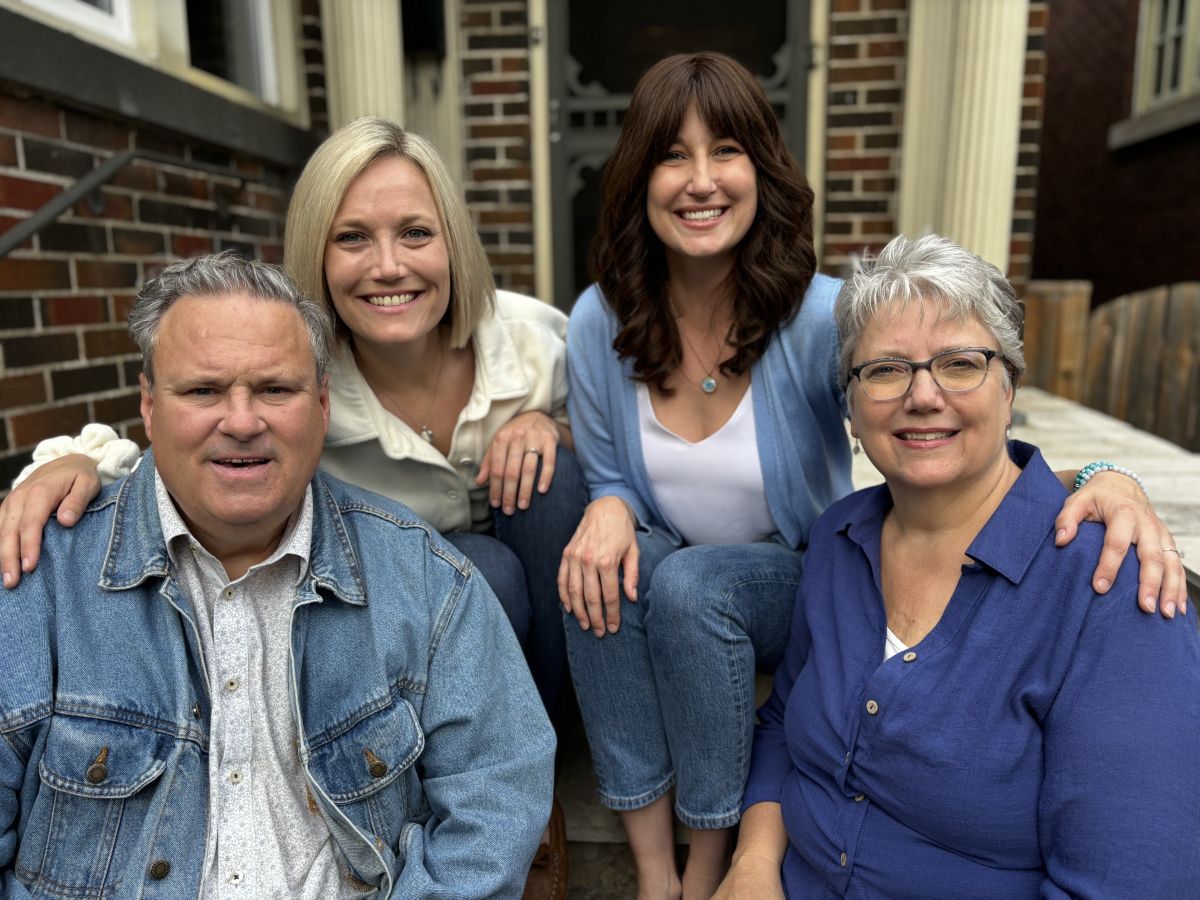 According to Angela, this extraordinary, changemaking attitude was just who Rebecca was.
According to Angela, this extraordinary, changemaking attitude was just who Rebecca was.
“Her motto was, ‘We rise by lifting others up,’” Angela says.
“She tried her best to make other peoples’ lives better. She was determined. Hopeful. Always hopeful for a cure.”
Rebecca certainly made a difference in her time here, and she continues to make a difference now. We, at Brain Tumour Foundation of Canada, are pleased to honour Rebecca with a Volunteer of Distinction Award for Advocacy, recognizing her incredible contributions to the brain tumour community. Because of Rebecca, brain tumour patients—and cancer patients—across Canada, will, hopefully, not have to experience the same challenges she did.
Rebecca’s selfless nature and desire to leave the world a better place will never be forgotten, and we are so very honoured for her everlasting support. Thank you, Rebecca, and thank you, to Rebecca’s family, for the difference you continue to make.